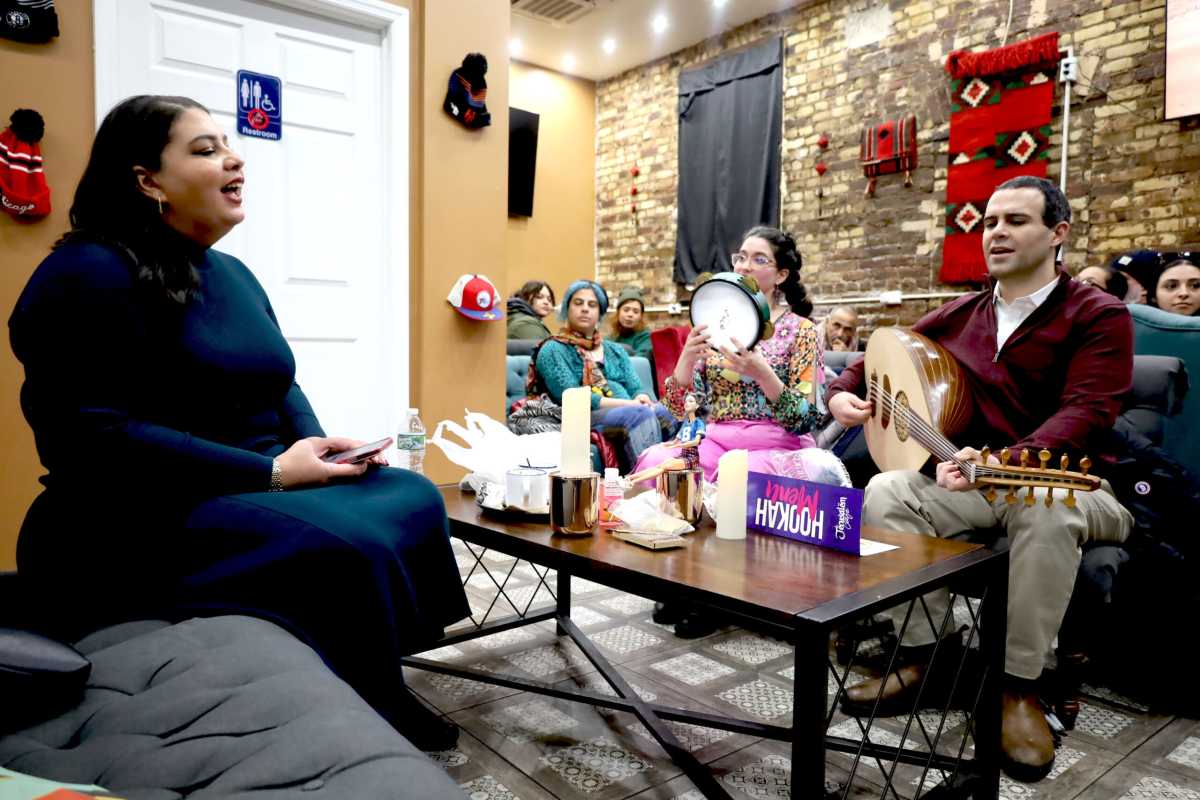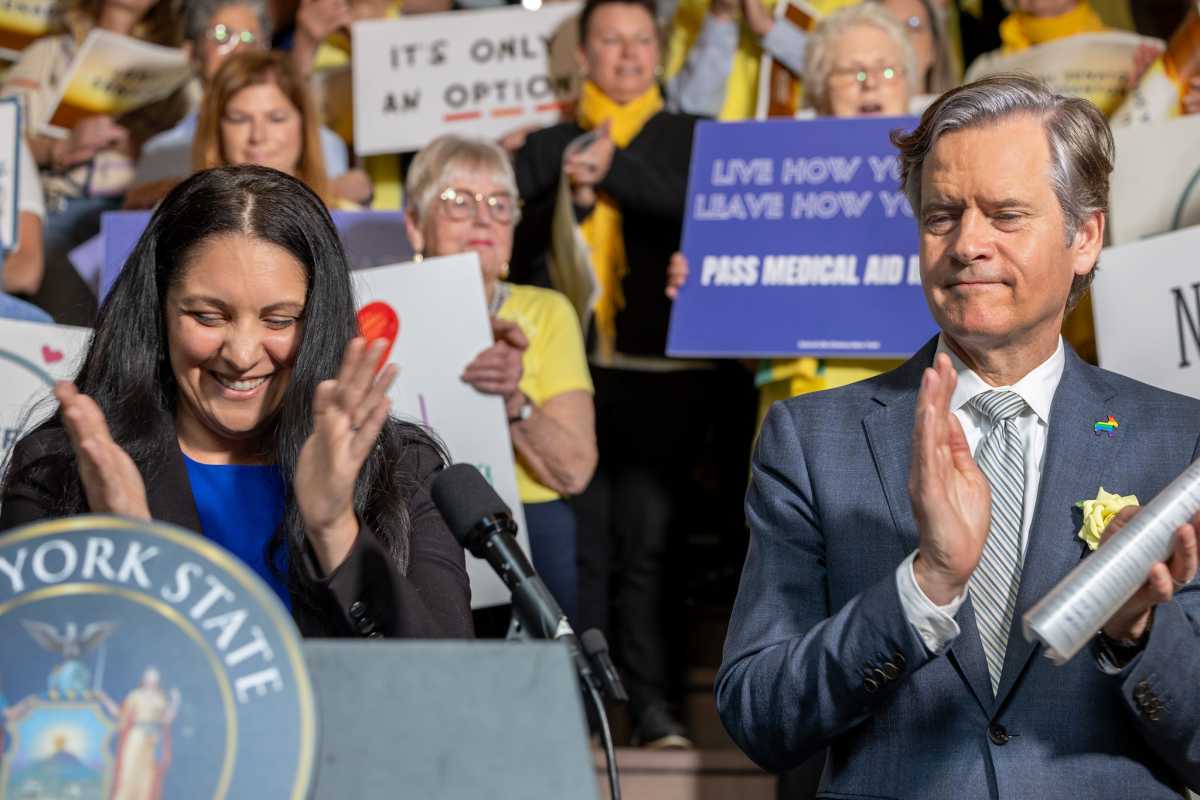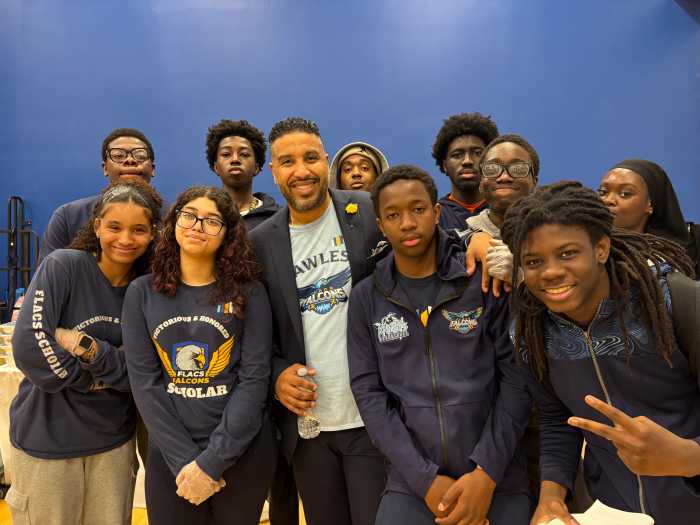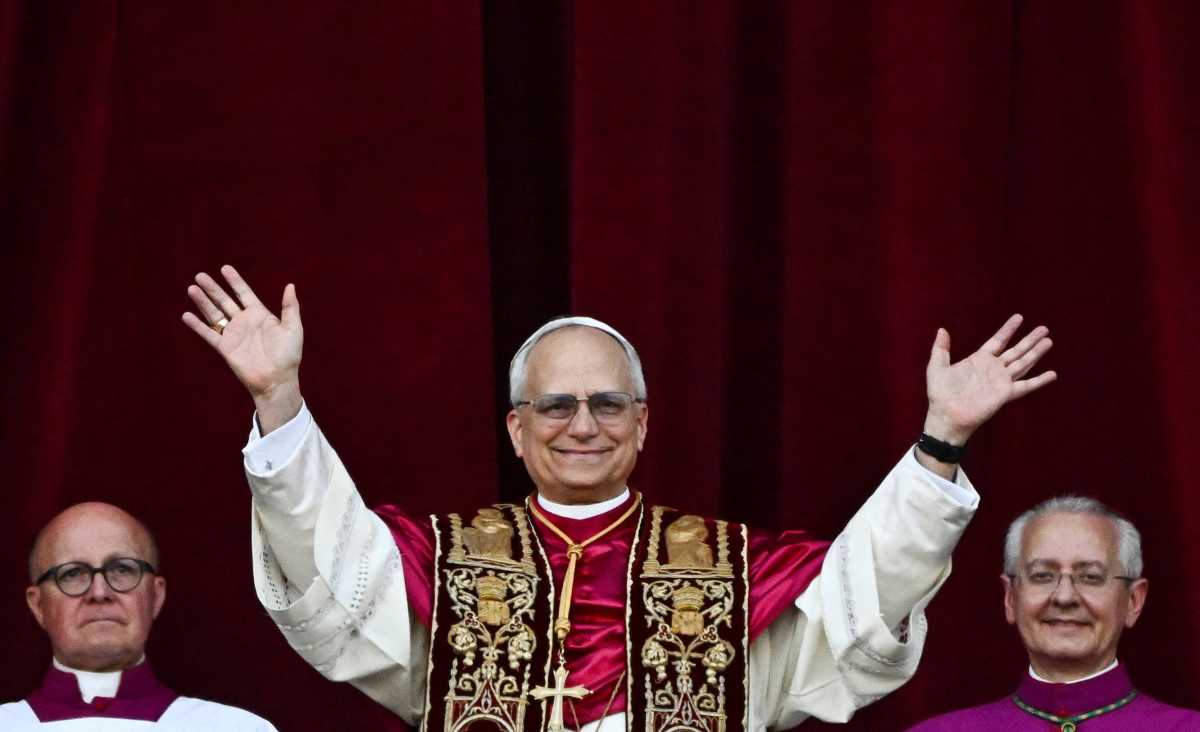For decades, Arabs have been plagued by negative tropes and stereotypes across Western culture. One group of artists hopes to not only dispel those notions, but to educate the masses on the beauty of Arab culture through the teachings of its music and traditions.
Support Arab Arts is a grassroots collective on a mission to “really just show everyone not a watered down or whitewashed version of this culture and history,” said its founder, Angie Assal. The group formed in 2023 when three individuals, who otherwise hold technical jobs like working for Google and Yahoo, found each other through a shared passion for traditional Arabic music.
“I feel like culture and music is the gateway drug into understanding that we’re a people. There’s more to us than halal carts and terrorism,” Assal added.
“I would double down on that,” said Ameer Armaly who plays oud for the group and was taught to play by his uncle as a young boy.
Armaly was born in South Carolina to Palestinian parents from Nazareth and Shefa-‘Amr in Israel and plays the oud with finesse and taste. Marwa Morgan came to the U.S. from Egypt in 2015 and despite not having any formal training, she entrances audiences with her vocals and Assal, a Bronx girl with roots in Lebanon, plays back-up percussion while serving as the merchandise designer and smiling representative for the musical collective. But regardless of their varying ethnic backgrounds, they all identify as Arab.
“It’s a multi-series of different cultures joined together by a common language or language family,” said Armaly.
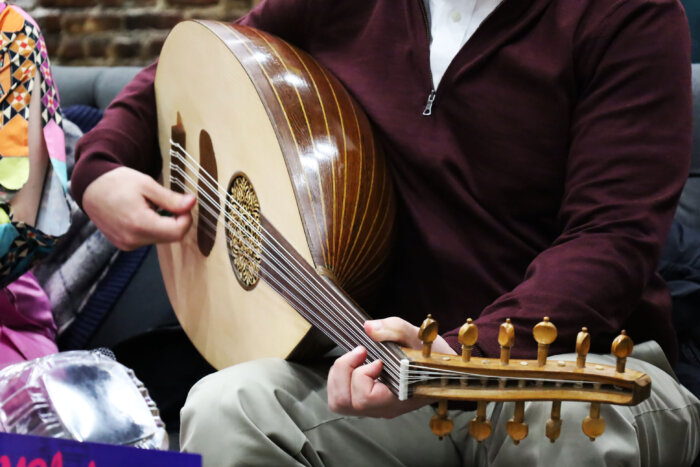
And while the term “Arabic music” will be used loosely, it is important to note that it is not a monolith. Just as Western music is a variety of genres across time periods and styles, so is the music of the Middle East. The songs played by Support Arab Arts are from the mid-1900s and primarily from Egypt and the Levant region.
Some of the songs include, “Fi Youm Wa Leila” by Warda Al-Jazairia whose song “Batwanis Beek” was sampled for Britney Spear’s, “My Prerogative” and “Zay Al Hawa” by Abdel Halim Hafez whose other song, “Khosara” was sampled by Jay-Z in his song, “Big Pimpin.’”
Arabic music has a long history of being sampled by Western artists without proper attribution and usually without the knowledge of the listener. Support Arab Arts works to revive that music and reclaim it as their own, while making it mainstream and turning it into something their generation can listen to and enjoy, much like contemporary rappers have done.
“We felt that there is a need to continue to promote that kind of music, especially within communities that have not had access to that kind of music historically,” said Morgan who also performs with the Brooklyn Maqam – an organization dedicated to presenting Middle Eastern music. “But also continue to just keep that music alive,” she added.
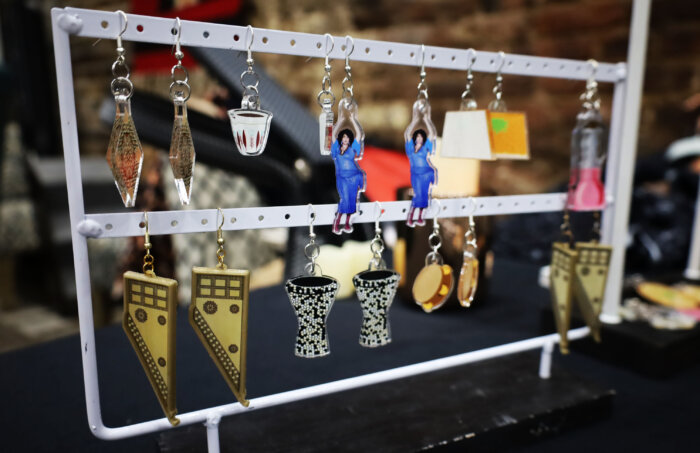
Sunday, Jan. 21, marked Support Arab Arts’ fourth pop-up performance as the trio played for several hours at Jerusalem Café – a hookah lounge serving the Van Cortlandt neighborhood at 5983 Broadway for the last four years.
“I feel we’re not welcome here,” said Muhannad “Manny” Assi, owner of Jerusalem Café who spotted someone removing the “Free Palestine” decal from the front door of the establishment. On the wall inside hang two large flags, one Palestinian and one Jordanian. The café sits at the bottom of Riverdale which is a predominantly Jewish neighborhood and according to Assi, tensions have been high since the events of Oct. 7, which continues to wage war on the people of Palestine and Israel.
But with devastation, one must seek the light.
The group sang traditional Arabic music and invited attendees to play the instruments provided, like the darbuka (a single-head drum) and a riqq (part of the tambourine family). The evening was centered around education and creating a platform to widely share a sound that’s typically reserved for movies and TV.
“We don’t get to listen this kind of music a lot,” said Amira Farid who is of Egyptian descent and traveled from Astoria, Queens, for the event which she learned about through Instagram. She and a group of friends were vocalizing along with the songs marked by their maqam — a system of melodic modes characteristic of Arabic singing.
“Last time [I saw live Arab music] was in college, four years ago,” Farid added, which further emphasizes the importance of events such as these.
And Support Arab Arts are not the first to harness music as cultural ambassadorship.
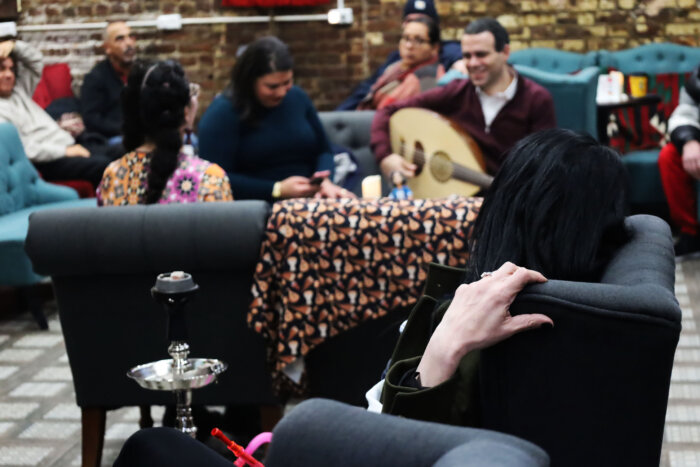
Simon Shaheen, a Palestinian born in Israel, began playing the oud at a young age as well. He pursued music throughout his entire college career in Israel. Then he received his master’s in performance at the Manhattan School of Music and earned a second master’s in music education from Columbia University. Shaheen founded the Near Eastern Music Ensemble and organizes festivals and retreats to spread Arabic music education.
Armaly began attending these Arabic music retreats in 2012 where he played with a group of fellow musicians for the first time. Despite playing the oud since childhood, he always played alone. He champions Shaheen as a trailblazer and an important figure to the teachings of Arabic music in the Western World.
“Simon took it to the concert hall, took it to Carnegie Hall, took it to the Kennedy Center, took it to the Smithsonian,” Armaly explained emphatically. “The idea that you could have Arabic music in these formal settings was not common – and we’re really just trying to build on this foundation and make our contribution.”
Support Arab Arts will be presenting their trio at the Bronx Music Heritage Center on Sunday, Feb. 18 at 3:30 p.m. along with classical belly-dancing and jewelry for sale designed by Assal. You can follow them on Instagram @supportarabarts for future events as the group encourages Arabs and non-Arabs alike to join in the joy they share for their rich culture and traditions.
Reach ET Rodriguez at etrodriguez317@gmail.com. For more coverage, follow us on Twitter, Facebook and Instagram @bronxtimes

